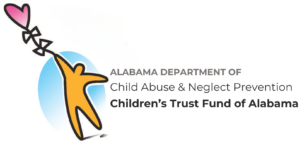When I first got sober, my relationships with my immediate family members were pretty rocky. I didn’t know how to communicate with them, I felt a lot of shame and guilt about my past behaviors, and I didn’t share many similar beliefs with them. It was almost as though no matter what was said, we were never on the same page.
It’s not that they didn’t support my recovery–of course, my family wanted me to get sober–but everyone had their own opinions of what my recovery should look like, and none of those opinions matched the advice of my therapist, recovery coach, or sponsor. I was at a point in my life where I needed to do what was best for me and that was to listen to the advice of these people who had helped so many others stay sober.
At first, it was hard living halfway across the country from my family while many of my peers were inviting their families to therapy and 12-Step meetings with them. But I quickly realized I wasn’t the only one who didn’t have family members who were directly involved and supportive of my recovery.
 Although family involvement and support in recovery are extremely important, not everyone’s family is involved. Some people came from families of addicts or alcoholics who were still stuck in the midst of addiction. Others came from families who were abusive or toxic. Several people I met didn’t have the support of their families because they didn’t have a family to support them. One girl’s entire family had tragically died while she survived. Another had left a fundamentalist, non-monogamous church group while the rest of her family stayed and cut ties with her. Needless to say, there are various reasons why some people simply don’t have their families’ support or involvement in their recovery.
Although family involvement and support in recovery are extremely important, not everyone’s family is involved. Some people came from families of addicts or alcoholics who were still stuck in the midst of addiction. Others came from families who were abusive or toxic. Several people I met didn’t have the support of their families because they didn’t have a family to support them. One girl’s entire family had tragically died while she survived. Another had left a fundamentalist, non-monogamous church group while the rest of her family stayed and cut ties with her. Needless to say, there are various reasons why some people simply don’t have their families’ support or involvement in their recovery.
If you are someone who doesn’t have your family behind you in your sobriety, it’s important to know that you are not alone and that family doesn’t always mean blood-related. Your “family” can be your sober peers from rehab, your sponsorship family, members of your favorite 12-Step meeting, or even a church or religious group.
Building a Sober Family in Recovery
If you don’t have the support of your family, your peer support group can be viewed as your “sober family” or “second family.” These individuals can support you, hold you accountable, and even relate to you in a way that your blood family cannot.
For some people, fostering new relationships can be difficult. As a quiet, shy introvert who doesn’t always know what to say, I sometimes struggle with starting and carrying conversations with new people. Other people may also struggle with social anxiety, mistrust, or fear of the unknown when it comes to new relationships. However, an essential part of staying sober is to develop a peer support group.
A few ways to begin establishing healthy relationships and building a sober family include:
- Find a sponsor with a big, involved sponsorship family – Part of the reason I picked my first sponsor was
 because she seemed quiet and shy just like me. Fortunately for me, she was the exact opposite. She knew everyone at the meetings she took me to and she was extremely close with everyone in her sponsorship family. She was always spending time with her sponsor’s other sponsees (her “sponsee sisters”) and her sponsee sisters’ sponsees. Once a month we all got together at her sponsor’s house just like one giant family. While it was overwhelming for me in the beginning, I met a lot of wonderful women who became crucial parts of my recovery.
because she seemed quiet and shy just like me. Fortunately for me, she was the exact opposite. She knew everyone at the meetings she took me to and she was extremely close with everyone in her sponsorship family. She was always spending time with her sponsor’s other sponsees (her “sponsee sisters”) and her sponsee sisters’ sponsees. Once a month we all got together at her sponsor’s house just like one giant family. While it was overwhelming for me in the beginning, I met a lot of wonderful women who became crucial parts of my recovery. - Pick up a service commitment – 12-Step meetings don’t charge a membership fee, but they do rely on volunteers to keep the meeting running. These volunteers must get there early and/or stay late after the meeting to do “service work.” Service work is a great way to spend extra time at meetings, meet more people, and strike up conversations with other sober people. Examples of service commitments that can help you build a sober family include making coffee, greeting at the door, setting up for the meeting, or cleaning up after the meeting.
- Find a homegroup – Many 12-Step members have a “homegroup.” A homegroup is a meeting or group that you attend each week, do service commitments for, and help make decisions for. Your homegroup will have an additional meeting once a month with homegroup members where you make decisions about the meeting, funding, and more. Having a homegroup that you go to every week is a great way to see familiar faces on a regular basis and start building relationships with them. My first homegroup even went out to eat with each other once a month. Going to that meeting truly felt like a second home.
- Participate in your rehab center’s alumni community – Many addiction treatment centers have alumni communities that hold meetings, sober events, and volunteer activities where you can meet and engage with other sober individuals. If you went to rehab, consider getting involved with your alumni. These individuals have shared experiences with you and can be a part of your sober family.
According to a paper published by Purdue and the Wisconsin Family Impact Seminar, there are many different definitions of family, and many of these move away from the traditional idea of parents, children, and siblings. The paper states that many functional definitions of a family refer to any unit where there is a sharing of resources, a caring supportive relationship, and commitment to others.[1]
Regardless of why your family may not be involved in your recovery, building a sober family can help you gain the support and fellowship you need to thrive.
Now, I can say I have two families. I have my blood family who will always be an important part of my life and my sober family who will always be a keystone of my sobriety.
References:









